If there was one defining image that encompassed 4A Games’ infuriatingly underrated survival-horror franchise, Metro, it was the dark, claustrophobic tunnels that its sombre world existed in.
Both 2033 and its sequel, Last Light, challenged you to survive in the darkest and most confining post-apocalyptic world to date, where resources were scarce and terrifying monsters were in abundance. However, 4A Games’ third entry in its cult-franchise defines itself with a different image. The monsters aren’t gone and supplies are still a rarity, yet, Metro Exodus ditches the confines of its titular subway system for the vibrant expanses of the world above the surface.
This comes with its share of changes. There are different mutated creatures, a shiny new crafting system, and the best visuals the franchise has seen to date. But it also comes with Exodus’s most divisive new feature: open world exploration. So, does removing the confines of an underground apocalypse take away the tense, horror focus of Metro as a franchise?
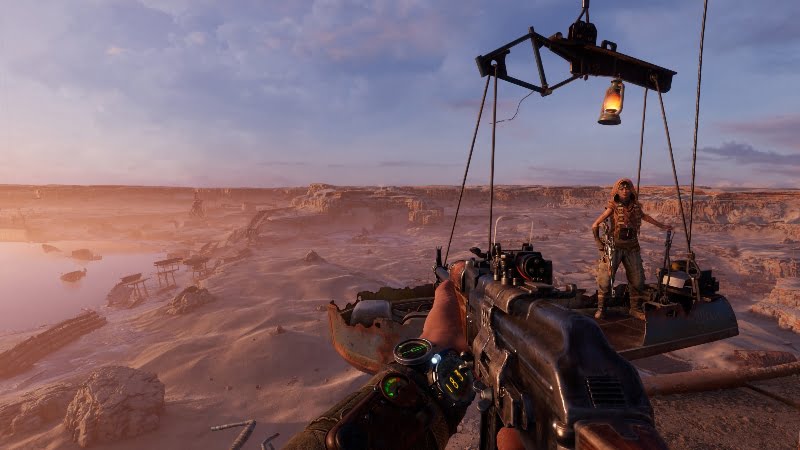
Thankfully, while this highly-anticipated threequel may expand the borders of its traditionally linear world, it also retains the creepy charm that made it such a cult success. It hasn’t got the refinement or polish that an almost 6 year wait between games might warrant, but this is a fantastic survival-horror experience that proves, once again, that Metro has enough raw atmosphere and character to stand shoulder-to-shoulder with some of the biggest single-player experiences on the market today.
The story picks up a couple of years after the events of Last Light. Protagonist Artyom is living a comfortable life in the Metro system with his now-wife Anna and imposing father-in-law sergeant Miller, yet he longs to see the world beyond the frozen wasteland of Moscow. During one of his routine visits to the hostile surface, Artyom stumbles across a means of escape: a giant steam train known as the Aurora. Gathering together his closest allies, the crew board the train and set off in search of new horizons, uncovering dark secrets about the Metro and beyond.

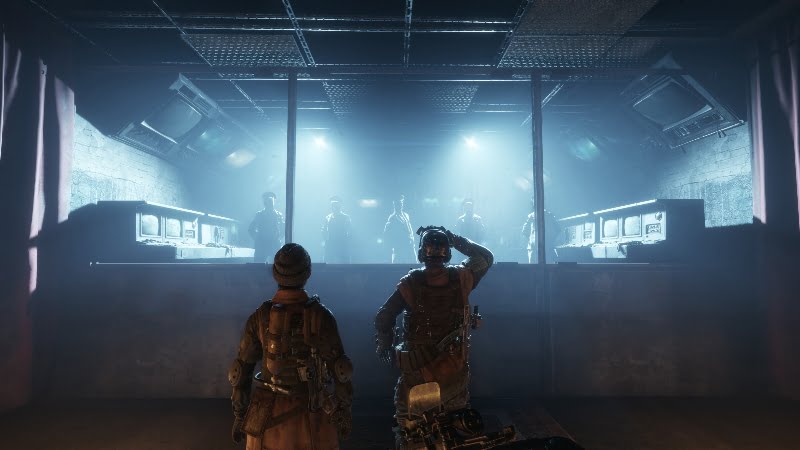

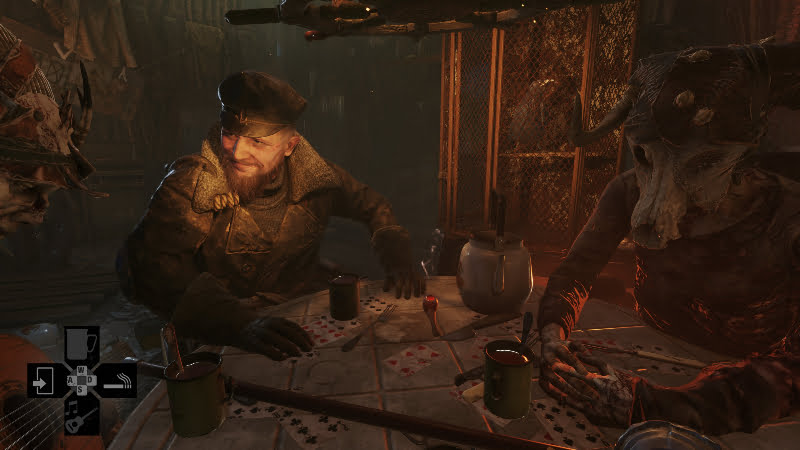
Unlike the previous two Metro titles, Exodus’s tale is remarkably intimate and human. There’s no politics, dastardly evil factions, or omniscient supernatural beings; just a small, desperate society trying to survive. It’s a narrative that consistently reinforces your small stature in this hostile world and welcomes some of the most effective set pieces of the series so far. The intense prologue and powerful final chapter in particular stand out as two works of stunning storytelling that refrain from pulling you out of the driver’s seat. As always with Metro, the characters could use a little more fleshing out – and definitely some better voice acting – but the work done to bring the franchise back to its imposing roots serves it well.
The story is less heavy-handed, however, although that’s largely due to the aforementioned introduction of open-world gameplay and the emergent storytelling the gameplay mechanics conjure. As Artyom’s story progresses, he journeys to a handful of diverse open-world areas complete with distinct monsters, bandits, loot, and side-missions. While this is a notable departure from the staple gameplay of the series, the scope and limited nature of these open-worlds mean they never feel too withdrawn from the Metro formula. There aren’t thousands of icons littering the map or worthless collectibles to find; instead, it simply tasks you with surviving and progressing to your objective while braving the harsh conditions of this new world.
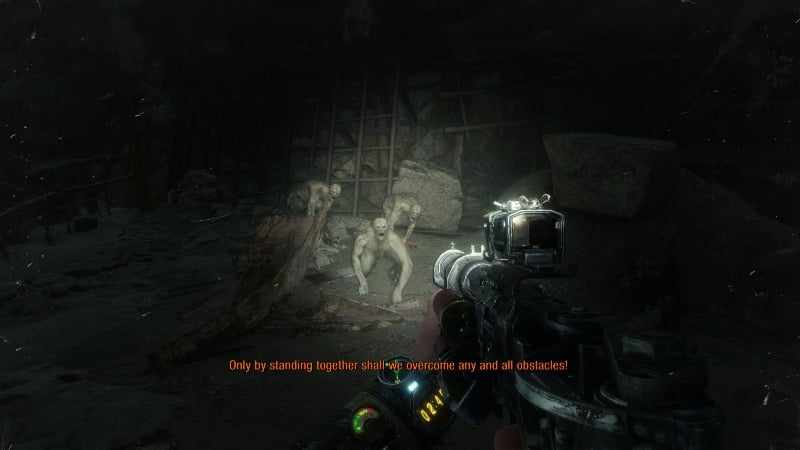
This comes with some new additions to the typical Metro gameplay loop. If you played the last game, the basics remain. Combat often sees you choose between stealth and firefights, the latter of which feels much slicker and weightier than before. You’re not a super soldier, however, so knowing when to pick your battles and when to avoid enemies is a constant struggle that’s better handled in Exodus than the previous titles. While you go down easier than in Last Light, so do your enemies, meaning that setting up a good position and fighting the enemy tactically is more rewarding than before, especially as these fights provide ample opportunity to loot enemies and gather more supplies. Stealth remains largely the same. You dart between dark areas while extinguishing lights so you won’t be seen. Unlike the firefights, it provides the opportunity to spare or fatally dispatch your enemies, which is an interesting moral decision that pays off in both small and significant ways – such as enemies discussing your lethality in combat while on guard.
Other returning survival elements include wearing gas masks to survive irradiated zones, managing ammunition, and charging your flashlight. These are joined by a small selection of new features, the most prominent of which is crafting. Carrying around a portable crafting table in his rucksack, Artyom has the ability to assemble ammunition, med-kits, gas mask filters and more while on the move, adding another dimension to survival. Better yet, it provides access to gun mods. This allows you to kit out your weapon to custom-suit specific situations while exploring. It lends much more freedom to how you approach enemy encounters, allowing you to tactically prepare before running into firefights.
But these open-worlds do come with their share of problems. Vehicles, for one, control horribly, meaning that navigating around the sandbox can occasionally be a nightmare as you fight unresponsive steering and acceleration. There’s also a lack of deep side-mission content outside of the first major area you visit, which means a lot of the exploration can feel a little insubstantial in comparison to the varied objectives you receive during your first open-world scenario. This is especially noticeable in the second area, which is probably the lengthiest of the lot but boasts the least story direction and blandest set of locations. Forming through a large, endless desert, it feels slightly too Mad Max-inspired for the dark, desolate world of Metro; the crazy car-focused enemies and giant, dramatic sandstorms simply lack the franchise’s signature charm.
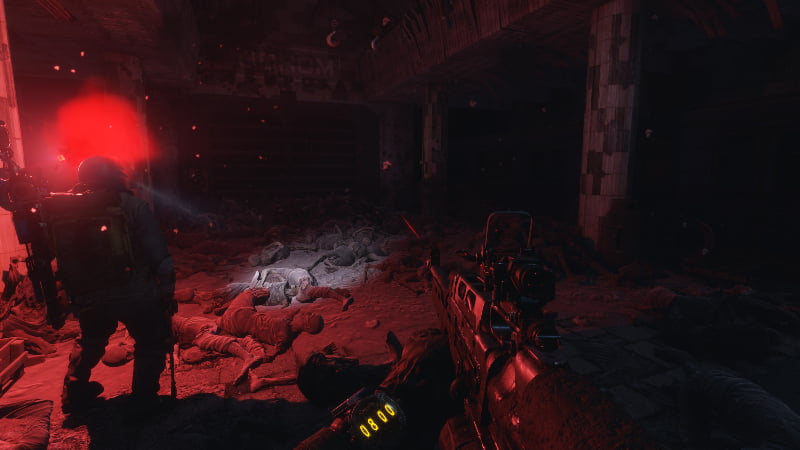
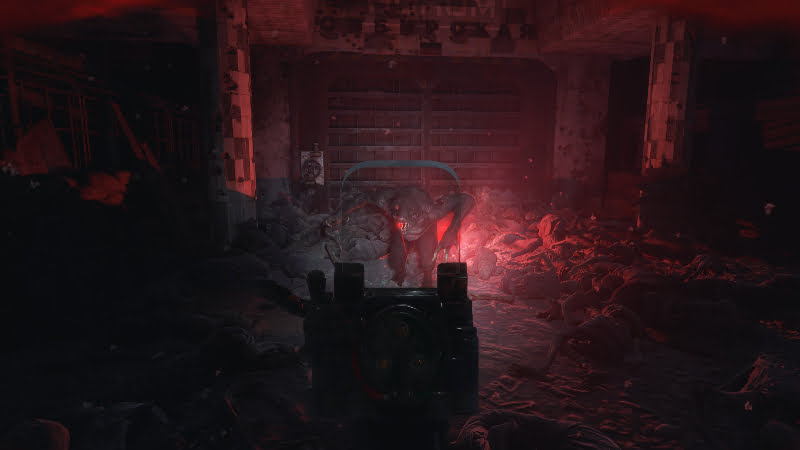
It also sadly can’t escape the rough-around-the-edges aesthetic that has haunted the Metro franchise for years. The AI is still unintelligible at times, wandering into plain sight or not spotting you while you stand right in front of their nose, while static character design and movement means enemies and allies have a tendency to move like rigid action men. I also got hit by the occasional game crash and frame rate drop. One instance that became part-humorous, part-infuriating was an enemy with dynamically animated hair that would murder my framerate every time it came on screen.
But it’s strange to see this lack of polish when the technical design is so brilliant. Visually, Metro Exodus is astounding on higher settings. The striking lighting is some of the best in recent memory, and the thorough world design makes every new area a joy to explore.
The audio is also an absolute treat, while the immersive surround sound means headphones are an absolute must if you want to enter the atmospheric game world around you. Both elements make this a tense and gripping experience that shows off some serious technical fidelity.
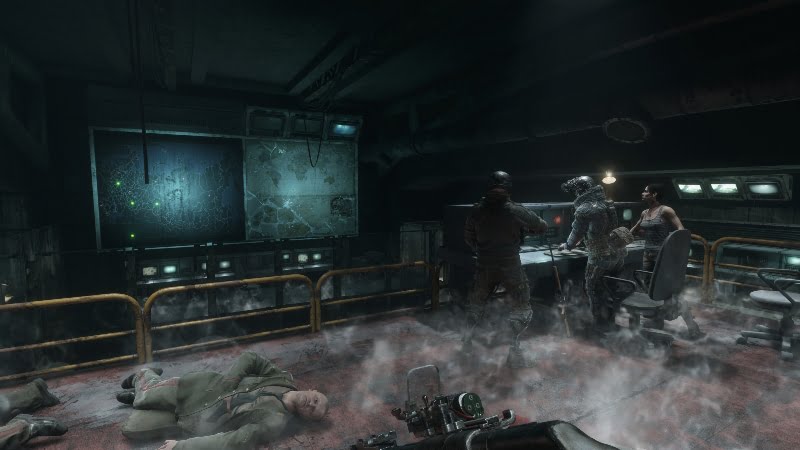
Metro Exodus is definitely a deviation for the series, but it’s one that celebrates its core values without letting the franchise become stagnant. Everything that makes the first two games the cult-classics they are remains: the creepy world, the survival-based combat, the haunting atmosphere. But what Metro Exodus does so well is show the adaptability of its formula, proving that the series’ is more than the cushy niche it had carved out. It’s dark, it’s scary, but most importantly, it’s a fresh new experience that broadens the series’ horizons while simultaneously playing to its greatest strengths.
Game: Metro Exodus
Platform: PlayStation 4 (Reviewed), Xbox One, PC
Developer: 4A Games
Publisher: Deep Silver
Release Date: Out Now






